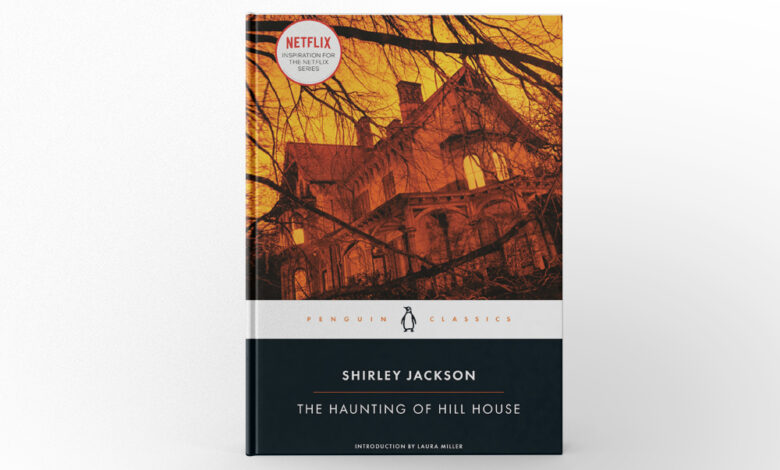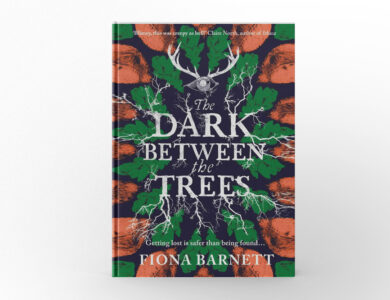
“The Haunting of Hill House by Shirley Jackson” is a seminal work in the gothic horror genre, renowned for its masterful blend of psychological and supernatural elements. This novel has captivated readers since its publication in 1959, leaving an indelible mark on the landscape of horror literature.
Author’s Background
Shirley Jackson was an influential American author whose work has left a lasting impact on the horror and gothic fiction genres. Born in 1916, Jackson’s writing career spanned over two decades, during which she produced numerous novels, short stories, and essays. She is best known for her dystopian short story “The Lottery” and her novel “We Have Always Lived in the Castle.” Jackson’s work often explores themes of isolation, psychological distress, and the supernatural, making her a pioneer in blending everyday life with eerie and unsettling elements. “The Haunting of Hill House,” published in 1959, is widely regarded as one of her masterpieces and a cornerstone of modern horror literature.
In Depth Summary
“The Haunting of Hill House by Shirley Jackson” follows the story of four individuals who come together to investigate the paranormal phenomena at Hill House, a mansion with a dark and mysterious history. Dr. John Montague, an investigator of the supernatural, invites three people to join him in his study: Eleanor Vance, a shy and reclusive woman with a history of poltergeist experiences; Theodora, a bohemian artist with a carefree attitude; and Luke Sanderson, the future heir of Hill House.
The novel begins with Eleanor’s journey to Hill House, where she hopes to escape her oppressive life and find a sense of belonging. Upon arrival, she is struck by the house’s unsettling architecture and the eerie atmosphere that seems to permeate every corner. The group quickly forms a bond as they explore the house and share their experiences. However, it becomes clear that Hill House has a malevolent presence that seeks to manipulate and torment its inhabitants.
As the days pass, the group experiences a series of inexplicable and terrifying events. Doors close on their own, strange noises echo through the halls, and ghostly apparitions appear. Eleanor, in particular, becomes increasingly affected by the house’s influence. She begins to feel a deep connection to Hill House, believing that it is calling to her and that she belongs there.
The tension reaches its peak when Eleanor’s mental state deteriorates, and she becomes convinced that she must stay at Hill House forever. The novel’s climax is both tragic and haunting, as Eleanor’s fate is sealed by the house’s malevolent power. The story ends with the remaining characters leaving Hill House, forever changed by their experiences.
Themes and Insights
“The Haunting of Hill House by Shirley Jackson” is rich with themes that resonate deeply with readers. One of the central themes is the exploration of fear and its psychological impact. Jackson masterfully portrays how fear can distort reality and manipulate the mind, creating a sense of unease that permeates the entire novel. The house itself becomes a symbol of this fear, representing the unknown and the uncontrollable forces that lie within.
Another significant theme is the search for identity and belonging. Eleanor’s journey to Hill House is driven by her desire to escape her oppressive life and find a place where she belongs. However, her quest for identity ultimately leads to her downfall, as she becomes consumed by the house’s malevolent influence. This theme underscores the idea that the search for belonging can be both empowering and destructive.
The novel also delves into the theme of isolation. Each character in the story is isolated in their own way, whether it be through their personal experiences, societal expectations, or the physical isolation of Hill House. Jackson uses this theme to explore the ways in which isolation can amplify fear and lead to psychological distress.
Personal Reflections
Reading “The Haunting of Hill House by Shirley Jackson” is an immersive and unsettling experience. The novel’s atmospheric prose and intricate storytelling create a sense of unease that lingers long after the final page. As a reader, you are drawn into the characters’ emotional journeys, feeling their fear, desperation, and longing as they navigate the dark and mysterious world of Hill House.
Jackson’s portrayal of Eleanor is both empathetic and haunting, capturing the essence of her struggles and triumphs. The alternating perspectives and varied narrative styles add depth to the story, providing a multifaceted view of the themes and emotions explored in the novel. Each character’s experience feels like a window into a different aspect of the human psyche, making the novel as a whole feel both cohesive and diverse.
Recommendation
“The Haunting of Hill House by Shirley Jackson” is a must-read for fans of gothic horror and psychological thrillers. Its masterful blend of dark themes, atmospheric prose, and emotional depth makes it a standout in the genre. The novel’s exploration of fear, identity, and isolation offers readers a thought-provoking and haunting experience. This book is a valuable addition to any library and a compelling read for those seeking a story that goes beyond traditional horror tropes.
Impact and Legacy
Since its publication, “The Haunting of Hill House by Shirley Jackson” has received critical acclaim and has been recognized as a significant contribution to contemporary gothic fiction. The novel has resonated with readers and critics alike, earning praise for its rich character development and evocative storytelling.
The book’s impact extends beyond the literary community, sparking discussions about the nature of fear, the role of women in society, and the power of the supernatural. “The Haunting of Hill House” has inspired numerous adaptations, including two feature films and a popular Netflix series, cementing its place in popular culture. Its influence is evident in its continued popularity and its place in contemporary literary discourse.
Conclusion
“The Haunting of Hill House by Shirley Jackson” is more than just a gothic horror novel; it is a profound exploration of fear, identity, and isolation. Its rich storytelling and emotional depth make it a standout work that continues to captivate and haunt readers. Shirley Jackson’s legacy as a masterful storyteller is firmly established through this remarkable book, which will undoubtedly continue to influence and inspire future generations of readers and writers.





